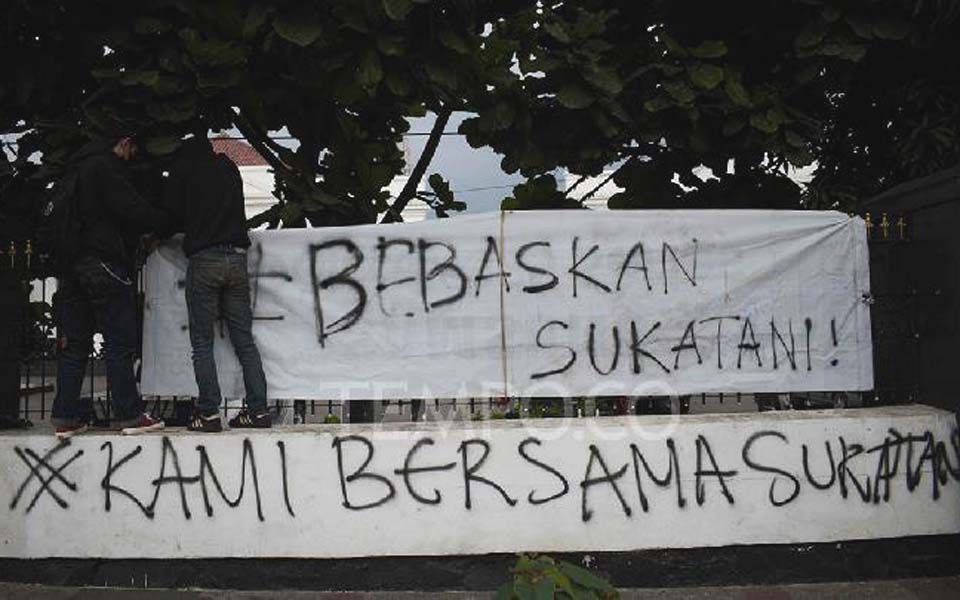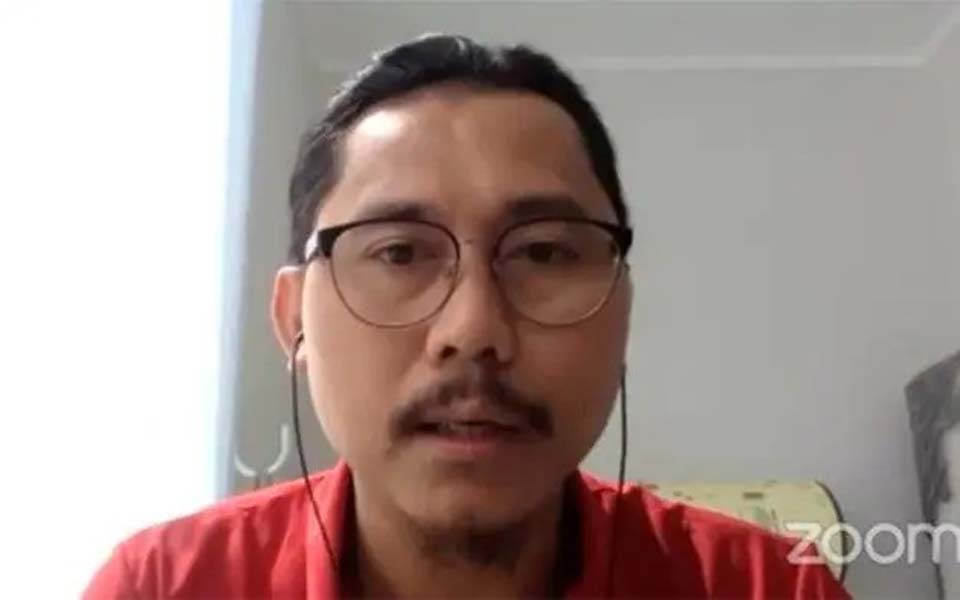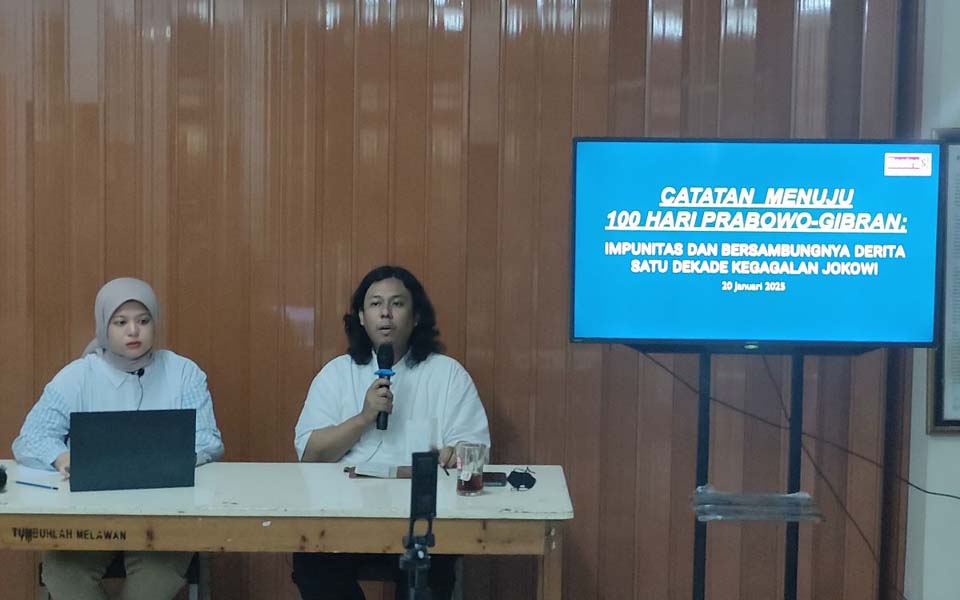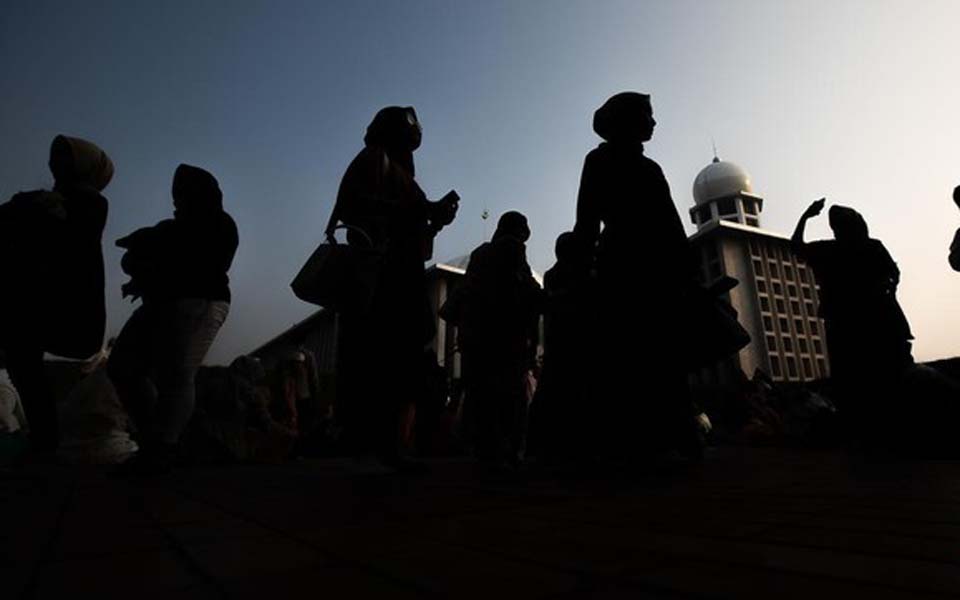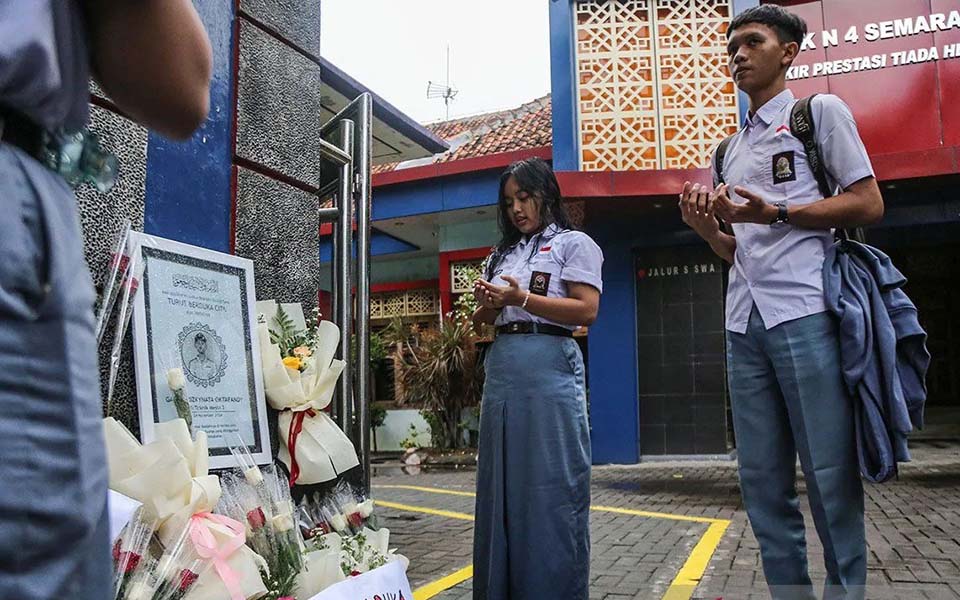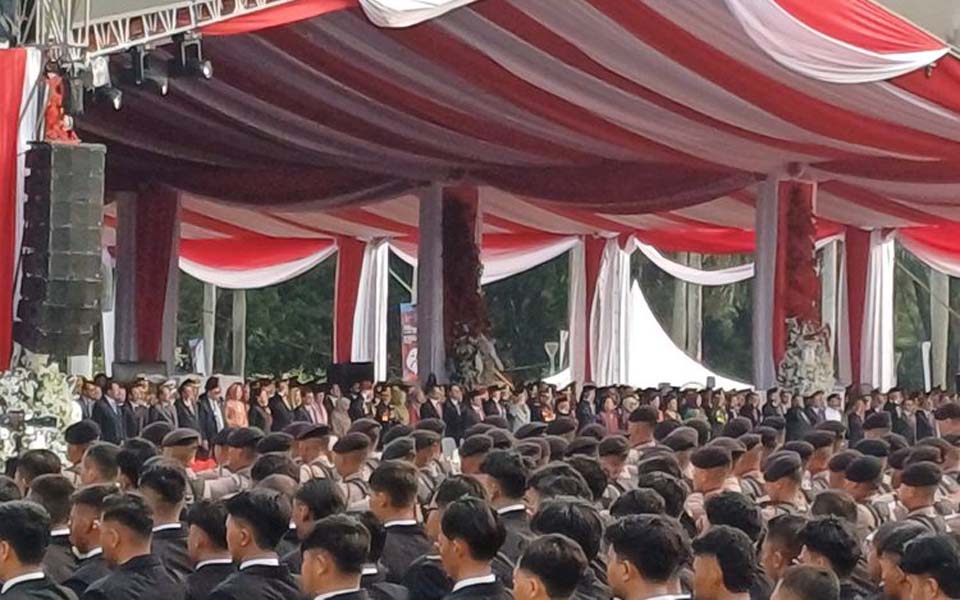Jakarta – It is as though state has no presence any more. Thus was an assessment by Constitutional Court Chief Justice Mahfud MD in depicting the endless cases of violence in this country. Law enforcers, which it would be hoped are the means to resolve social conflicts, instead generate injustice.
This injustice does not just occur in the law enforcement agencies’ treatment of the public and those in power/businesspeople, but also in court verdicts. Many ordinary people who are forced to commit crimes are given heaver sentences that the perpetrators of corruption who clearly harm the country.
Indonesian Islamic University (UII) legal sociologist Suparman Marzuki from Yogyakarta, Sunday (3/10), conceded that the widespread mass violence of late is caused by an accumulation of disillusionment among ordinary people over the failure to uphold formal law. People then seek their own solutions because the law in this country does not resolve problems. “Law enforcement institutions’ resolution methods in fact give rise to new problems, new injustices, and new forms of violence”, he said.
This disillusionment further accumulates because as well as experiencing injustice in the judicial system, said lawmaking body deputy chairperson Masdar Farid Mas’udi from the Islamic mass organisation Nahdlatul Ulama, ordinary people are also suffering from economic difficulties. Unemployment and poverty levels in the country remain high and this problem cannot be resolved overnight, but requires that concrete steps be taken by the government.
Moreover, this injustice becomes even more palpable if the suspicions by National Land Agency (BPN) head Joyo Winoto are true. At a meeting with Kompas editorial staff last week, Winoto estimated that 56 percent of the country’s assets are controlled by just 0.2 percent of the population. “[Although] this data could still be reexamined,” he said.
The BPN however does indeed note that farmers’ control over land in this country is steadily declining. Conversely, there are 7.3 hectares of land owned by companies that have been left abandoned.
This situation, said sociologist William Chang, gives rise to social frustration in society (Kompas, October 1). This condition is worsening further because state officials are not improving, but rather are acting in a corrupt manner and worsening the situation.
“Public officials that are corrupt, dirty, destructive, and have no commitment to fighting for the ordinary people, must be removed. Leaders must be firm and have the courage to replace them with people who are clean, have integrity and are prepared to sacrifice themselves for the sake of national improvement”, added William.
Golkar Party advisory board chairperson Akbar Tandjung concedes that the violence that has been occurring of late is cased by social unrest. The factors that trigger this are very diverse. “Conflicts cannot possibly be avoided so they must be managed lest it disrupt the principles of living together”, he said.
Mending their ways
Mahfud admits to being surprised at how the cases of violence in the country can drag on. He gives as an example residents of the Ahmadiyah religious sect in Mataram, Lombok Island, who to this day are still displaced. “This is a persons’ basic right. Imagine if you were treated like that, thrown out of your own house. Leaving out of fear. It is as if there is no state there”, he said.
He also suspects that the prolonged cases of violence in society are caused by a lack of firmness on the part of law enforcement officials, yet the regulations are clear.
Marzuki is asking the government to fix law enforcement institutions such as the Attorney General’s Office and the national police, along with their internal culture. The police as the gateway of criminal justice are still dominated by a culture of militarism and power.
“The cultural transformation of the police has been very slow. Every single problem is overcome with violence, by arresting and silencing people. This kind of culture must be fixed. [Problem] resolution must pay attention to the context and its variables”, he said.
Conversely, Masdar believes that curing law enforcement and the elite of behaviour that hurt the people’s feelings is a short-term solution that must be carried out immediately in order to overcome the recent spate of violence. Without these two things, he worries that the people will become even more frustrated and violence will spread and become difficult to overcome.
According to Masdar, the roots of the recent violence are caused by three things, which include economic difficulties that are increasingly bearing down on the people, the poor example set by the elite and weak law enforcement.
“When some of the people are finding life difficult, precisely at the same time the people see many officials misusing authority, being corrupt, and enriching themselves, without concern for the people who they should serve. This is worsened by weak law enforcement and hurting the people’s sense of justice”, he said.
In order to overcome this problem, strong efforts are needed by various parties over a long period. Because of this, what must be done most immediately is taking firm action against the perpetrators of unrest and changing the character of leadership between the national elite. All of the political elite and the government must improve themselves by mending their ways nationally.
“All public officials must ask for forgiveness and mend their ways. Conscious life is not forever. They must realise, God who they refer to in oaths and promises will ask for accountability”, said Masdar.
Once again he warned, “Public officials are given authority and are paid a salary by the people not to lie to and hurt the people’s feelings. They must protect rights and serve the people”.
In the same vein, William also said, “What is needed is to carry out a total clean up of officials from the central [government] down to the regions. Indonesia’s population is more than 230 million people and there are many daughters and sons of the nation that are clean and have integrity”.
People’s welfare
House of Representatives (DPR) speaker Marzuki Alie is calling on the government, the business world and other components of the nation along with the DPR and other institutions to accelerate the realisation of improving the people’s standard of living. This is important to prevent social frustration in society and eliminate the violence that has been spreading up until now.
People’s welfare can be created by improving the economy through creating as many employment opportunities as possible and law enforcement. “Now it is how to accelerate the achievement of people’s welfare by overcoming poverty and minimising unemployment. There is no other way except increasing economic growth as much as possible accompanied by even distribution that is a just as possible”, said Alie.
According to Alie, this is not just the obligation of the government and the DPR, but rather is also the responsibly of the business world and society, not to mention that up until now there is still much national potential, including youth, which have been overlooked. (ato/nwo/ana/har/why/tra)
[Translated by James Balowski.]






